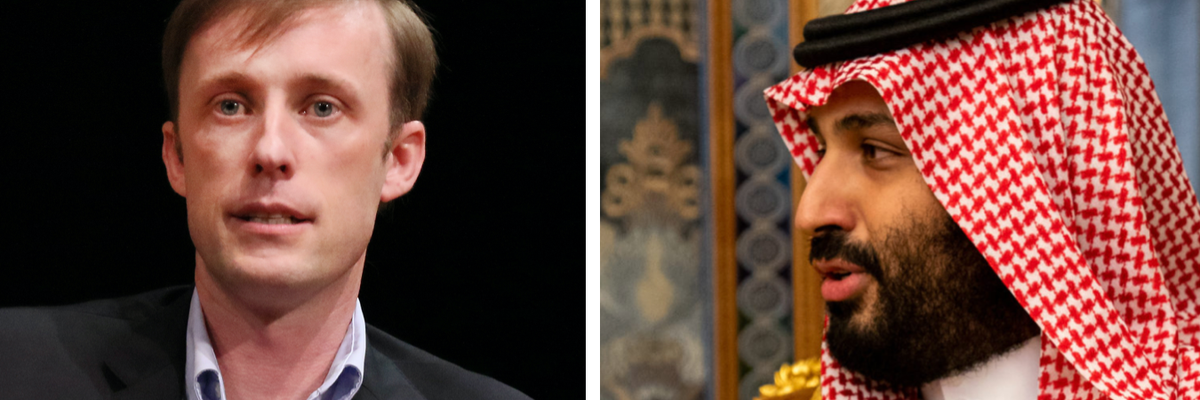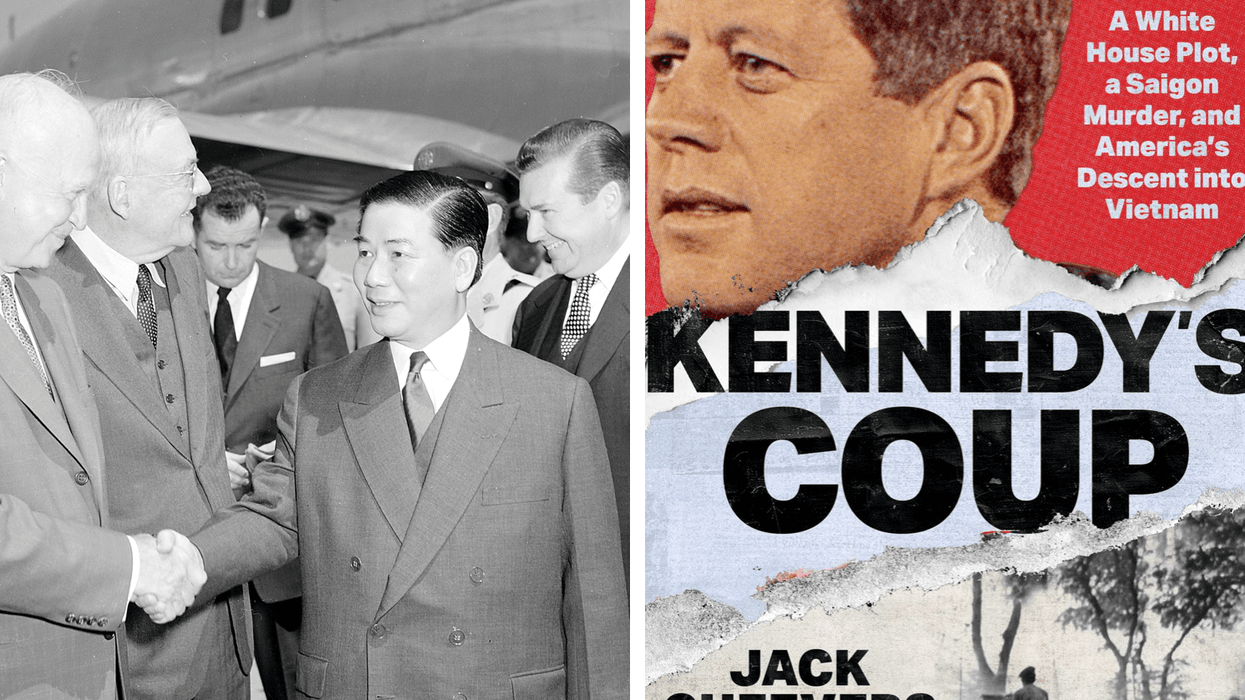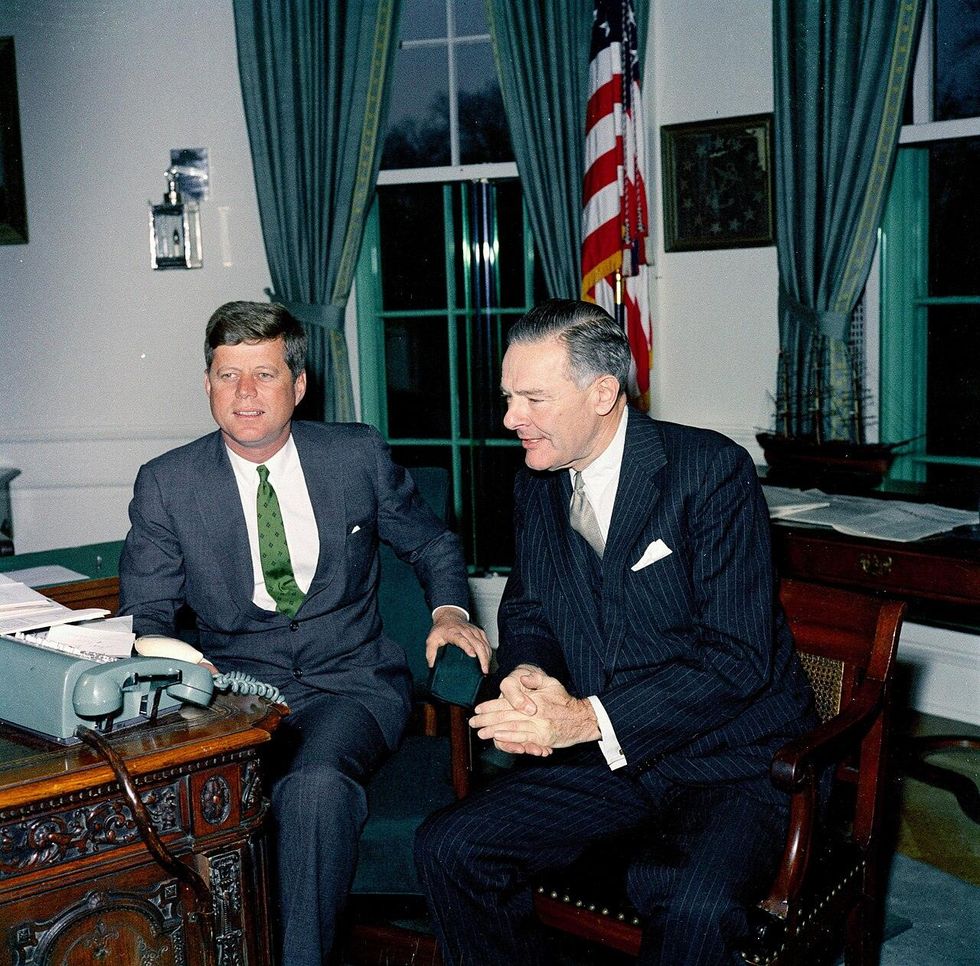Biden’s National Security Adviser Jake Sullivan is in the Arabian Peninsula for meetings with Saudi and Emirati officials. Sullivan’s meeting with Saudi Crown Prince Mohamed bin Salman occurred just days before the three year anniversary of the murder of Washington Post journalist Jamal Khashoggi in the Saudi consulate in Istanbul, on MBS’s orders.
Sullivan is expected to focus on the deteriorating situation in Yemen, as he is joined by U.S. Special Envoy for Yemen Tim Lenderking, as well as by the National Security Council’s Middle East and North Africa Coordinator Brett McGurk.
The urgency of the conversation on Yemen may have been heightened by Friday’s successful passage of Rep. Ro Khanna’s Yemen amendment in the National Defense Authorization Act. Khanna’s amendment would end all U.S. support for Saudi military actions against the Houthis, including maintenance support and spare parts for the Saudi Air Force, three quarters of whose planes are U.S.-made. Although Khanna’s amendment may not survive final conference, its success on the floor of the House signals Congressional frustration with ongoing U.S. complicity in the Saudi war on Yemen.
This is likely to be the message Sullivan brings to his Saudi counterparts, something along the lines of, “Look, pressure from Congress is increasing, we will not be able to hold them off forever, you have to find a way to get out of Yemen.”
Crown Prince Mohamed bin Salman is likely to respond that given recent Houthi advances, it is even more imperative that the U.S. maintain its support to the Saudis, in order to prevent the Houthis from potentially gaining more ground. The Saudis are likely to rely on the bogeyman of Iranian support for the Houthis, an issue that the Biden administration would have been able to discount if they had acted more quickly to rejoin the Iran nuclear deal before the June elections brought a hardliner government to Tehran.
What Sullivan should say to Mohammed bin Salman and the Saudis is that Biden is serious about the statement he made during his first foreign policy speech, that the U.S. would end all support for offensive Saudi military operations, including relevant arms sales. If actually implemented, Biden’s statement would fulfill the terms of Khanna’s amendment, by ending U.S. involvement in any Saudi military actions in Yemen, because these are offensive operations, by definition. Sullivan should also make clear that if the Saudis wish to maintain a working relationship with the United States, they need to allow fuel to enter Hodeidah port and to stop delaying the entry of other basic necessities. The Saudis must also allow Sanaa International Airport to reopen.
Sullivan should also make clear that if the Saudis ended their military campaign against Yemen, the United States would be willing to help them secure their southern border. However, if the Saudis insist on maintaining their bombardment and blockade of Yemen, the U.S. should end the sale of all arms and military equipment to the Saudis.
Unfortunately, this is highly unlikely. Although Sullivan may be able to use the passage of the Khanna amendment to try to scare the Saudis, they are likely well aware of the fact that in addition to Khanna’s amendment, the House also passed an amendment sponsored by House Foreign Affairs Committee Chair Gregory Meeks which would permit U.S. support for Saudi Arabian air strikes in Yemen to continue so long as such strikes are not classified as “offensive.” Senator Reed has also placed language with similar loopholes in the Senate version of the NDAA that will soon receive a floor vote. This language reflects the position of the Biden Administration that it would end support for “offensive” Saudi operations, which it apparently elides by not classifying Saudi air strikes as offensive military actions. Sullivan had previously signed on to a letter, spearheaded by Sen. Bernie Sanders and sent in October 2019, that urged Congressional leadership to end U.S. involvement in the Saudi war on Yemen. Other current members of the Biden administration, including Wendy Sherman and Samantha Power, also signed the letter, (alongside Quincy Institute President Andrew Bacevich). Unfortunately Sullivan and other senior administration officials now appear to be less concerned about Yemen’s plight.





 President John F. Kennedy and Henry Cabot Lodge Jr. in 1961. (Robert Knudsen/White House Photo)
President John F. Kennedy and Henry Cabot Lodge Jr. in 1961. (Robert Knudsen/White House Photo)










